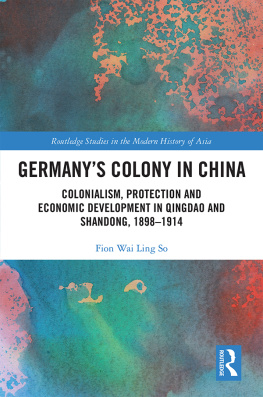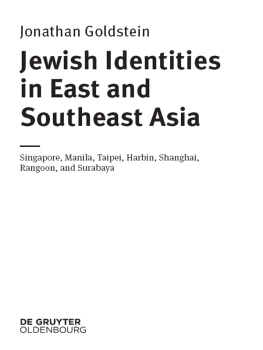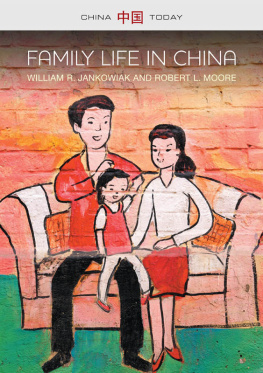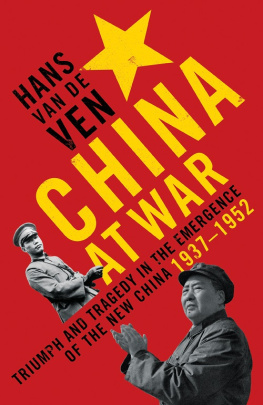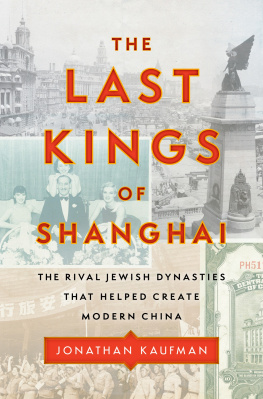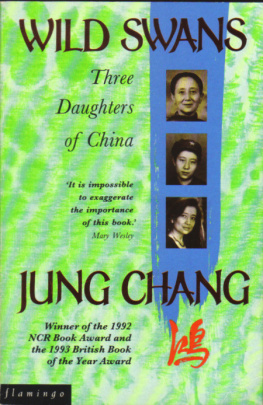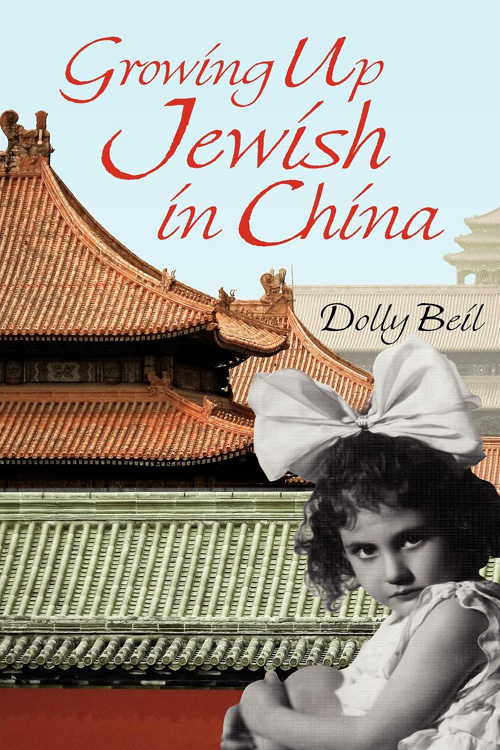All rights reserved. No part of this publication may be reproduced or transmitted in any form or by any means, electronic or mechanical, including photocopying, recording, or any information storage and retrieval system, without permission in writing from the publisher.
A division of Bastian Publishing Services Ltd.
Cataloguing-in-Publication Data available from Library and Archives Canada.
Map of China, page 2, copyright maps.com. Used by permission.
My mother, Bassia, was a very valuable source of information as I wrote. She reminded me of some of the details of the events of my life and the life of my family. One hundred years old at the time, she walked without aid and recalled with ease many rich memories for my recorder. I treasure her contribution.
After hearing me lecture on my experiences, George Metz wrote a letter prompting me to write this book. He said that he was moved by some of my accounts, and that, in his opinion, a book on my life would make a very good movie. I thank him for the inspiration.
When I give my lectures, members of the audience invariably approach me and ask if I have written a book. For so long now I have promised them that I would, telling them that it was in process. With the publication ofGrowing Up Jewish in China, I have kept that promise.
My mother, Bassia, and her father.
1
From Russia
with
Love
The City of Tsingtao
I n Shantung, a northern maritime province in China, notable in that countrys history as the home of Confucius, there is a lovely port city called Tsingtao. This is where I was born, on December 25, 1927.
Shantung Province is dotted with lakes and intersected by the Yellow and Chiaolai rivers, and the Grand Canal, and opens to the Yellow Sea. It was opened to Western trade as a result of Chinas 1858 treaty with Great Britain and Germany.
Shantung became a centre of international conflict in 1898, when Germany forced China to lease Kiaochow, including Tsingtao, to it and to grant it railway concessions. Just after the outbreak of World War I, Japan seized Kiaochow and obtained a secret agreement from Allied powers, recognizing her claims over Shantung. At the peace conference of 1919, the representatives of the Allied powers admitted Japans claim. There were strong protests from China, and, at the Washington conference in 1922, Japan agreed to withdraw her troops from China. Then, before 1937, Japan twice sent troops to Shantung, occupying it until 1945.
Tsingtao is one of several ports that have played a significant role in Chinas foreign relations. It was known as a very prestigious summer resort a playground for the wealthy. It was inhabited mostly by Germans. The city was quite prosperous: It had its own industry, and many foreign ships docked in its harbour. Industrialists established themselves there, aided by Prussian military might, and took advantage of cheap labour, natural resources, and the citys deep all-weather port.
The German residents of Tsingtao built a city of sturdy, spacious houses, with a vast cathedral and a popular shopping district. They made Tsingtao into a prosperous, middle-class Bavarian settlement.
Tsingtaos natural setting is appealing. Its many sandy beaches and mountainous islands provide a backdrop of exceptional beauty. In close proximity to it rises Laoshan, a small but wondrous mountain, the principal river of which provides water for Chinas best beer, Tsingtao beer. Our family often visited Laoshan during the summer, enjoying lavish picnics among the tall grasses and wild flowers of this lovely retreat.
Tsingtaos beaches were the main attraction for tourists. During the summer months, they were filled with vacationing families. The city also included wealthy Chinese, some English residents, and numerous other nationalities. It was prosperous, with many foreign ships, including ones from America, docking at its harbour.
Chinas Rich and Colourful History
C hina has a very long and colourful history. While that history includes the presence of Jews, they were a decidedly tiny minority, a speck in a sea of Han Chinese. The Han are indigenous to China and are the single largest ethnic group in the world. They constitute ninety-two percent of the population of the Peoples Republic of China, and about nineteen percent of the entire human population.
Between the various Han subgroups in China, there is substantial linguistic, genetic, cultural, and social diversity, mainly because of thousands of years of regionalized assimilation, throughout China, of various ethnic groups and tribes.
The land of my birth was a region comprising the northeastern portion of China, known to the Chinese as Tungpei and to the West as Manchuria. The Manchus had established the Manchu dynasty from 1644 to 1911. The people of present-day Manchuria, however, are mainly Chinese. The great majority of Manchus have adopted Chinese names, customs, and language. Many Chinese refer to themselves as descendants of the dragon. Han Chinese are traditionally symbolized by the colour of red, though the Emperors wore the colour of yellow, known as Imperial Yellow.
Shortly after the Opium War that ended in l892, China was forced to open some of its ports for trade. Before that time, the country was self-sufficient. In fact, it had been ahead of most countries for centuries. It had prospered under a succession of dynasties and would have been perfectly content to be left alone. China abhorred all outsiders, calling them foreign devils.
Nevertheless, superiority in weaponry enabled foreign powers primarily England, France, Germany, and Russia to enter the port of Canton and proclaim victory, forcing the Chinese to cede territory.
European countries sent their representatives to form small legations in the port cities. Later they invaded more cities and set up concessions, areas in the cities where they could freely establish businesses, strengthen trade ties, and develop their community. Over time, Russian, German, Italian, French, and British concessions were formed. This gave them an open door to China.
The Second Generation
T hough Jewish, I am second-generation Chinese, for my mother was born and raised in China. Further, I lived there for the formative years of my life, in the cities of Tsingtao, Mukden, Harbin, and Tientsin, with extensive trips to other parts of the country and to Japan.


